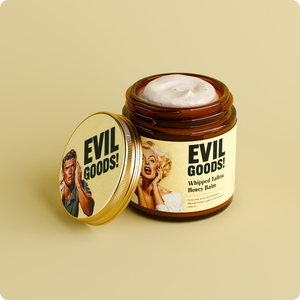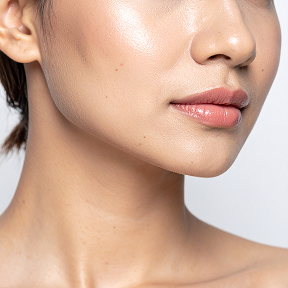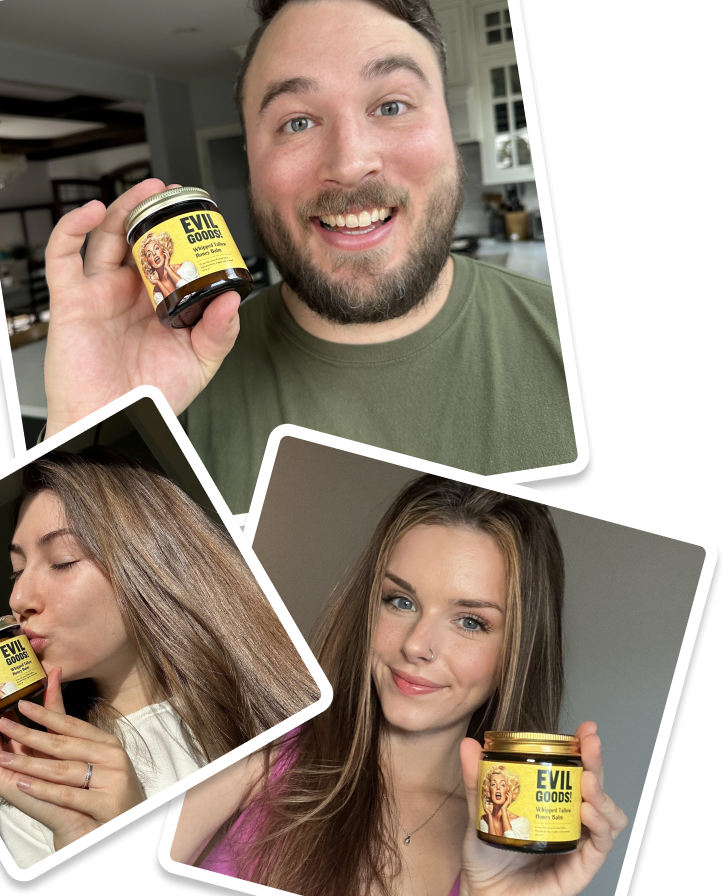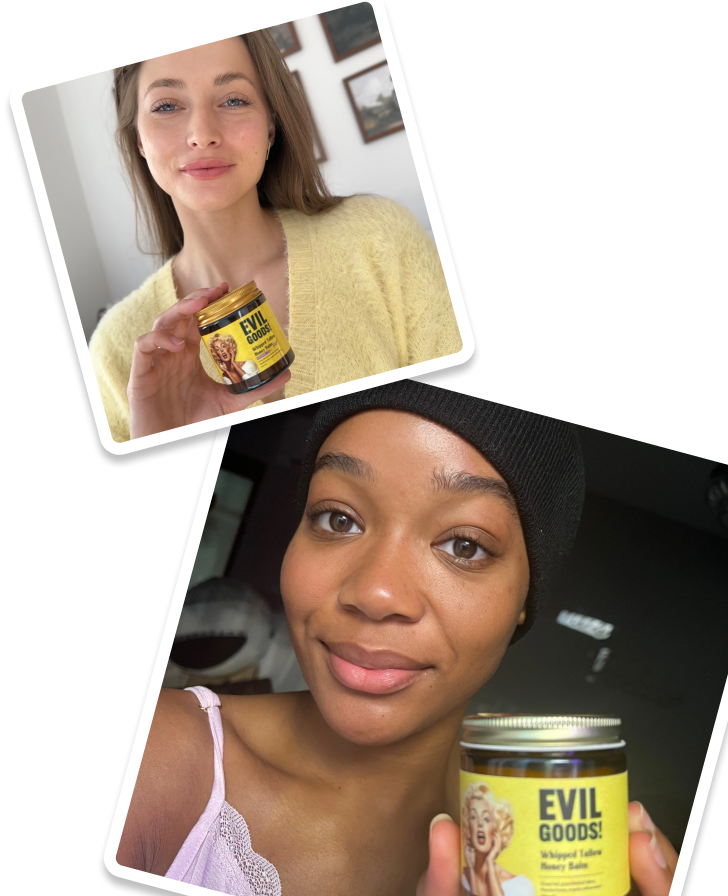Beef tallow has gained a lot of attention lately as a natural alternative in skincare, especially for people looking to simplify their routines. It's packed with nutrients and is similar to the oils our skin naturally produces. But for those with acne-prone or sensitive skin, one big question often comes up: is beef tallow comedogenic? In other words, does it clog pores and lead to breakouts? In this study, we’ll explore how beef tallow works with the skin, whether it's comedogenic, and what that means.
What is Beef Tallow?
Beef tallow is a type of animal fat, specifically from cows, that is rendered and clarified. It is obtained from the fatty tissue that surrounds the organs of cattle. Beef tallow has been used in cooking, soap making, and recently, in natural skincare. This ingredient has a composition similar to human sebum, which is what gives it its moisturizing properties and makes it useful in skincare routines.
Where Does Tallow Come From?
Tallow comes from the rendered fat of grass-fed cattle. This process involves heating the fatty tissue slowly until it melts, then removing impurities. The result is a creamy, nutrient-rich fat that can be used in different beef tallow skin care products.
High-quality beef tallow is free from unnecessary additives and similar to the skin's natural oils.

The Benefits of Beef Tallow for Your Skin
Beef tallow has a lot of nutrients, which makes it great for the skin. It’s packed with fatty acids and vitamins A, D, E, and K. These assist in repairing the skin barrier, keep skin healthy, and provide moisture.
Unlike synthetic skin care, tallow products nourish without irritating your skin.
Beef Tallow’s Nutrients Support Healthy Skin
The skin craves the nutrients found in beef tallow. Fatty acids like oleic, palmitic, and stearic add to its emollient properties (the quality of softening or soothing the skin). These compounds strengthen the skin barrier and prevent water loss from the outermost layer of the skin.
Studies have shown that beef tallow is made up of about 40% oleic acid, making it effective in delivering moisture and nutrients into the skin.
Vitamins A and E are known for their antioxidant properties. They help in improving skin cells and fighting skin conditions such as eczema and psoriasis.
What Does Comedogenic Mean?
Comedogenic refers to the tendency of a substance, usually a skincare or cosmetic ingredient, to clog pores and potentially cause comedones, which are skin blemishes like blackheads and whiteheads. Products labeled as comedogenic are more likely to block pores, leading to breakouts, mostly for people with acne-prone or sensitive skin.
On the other hand, non-comedogenic products are formulated to avoid clogging pores and are generally safer for those looking to reduce the risk of acne or irritation.
What is the Comedogenic Scale?
Ingredients are measured on the comedogenic scale, which rates them from 0 (non-comedogenic) to 5 (comedogenic).
Ingredients with high ratings are likely to clog pores and cause acne breakouts, especially for those with acne-prone skin.
Where's Beef Tallow on the Comedogenic Scale?
Beef tallow falls generally between 1 and 2 on the comedogenic scale.
This places it in the low to moderately comedogenic category, meaning it’s unlikely to clog pores for most individuals when used appropriately. Its similarity to human sebum allows for fast absorption and reduces the likelihood of pore blockage.

Does Beef Tallow Clog Pores?
A 2021 survey conducted by natural skincare forums found that over 80% of users reported no pore clogging or breakouts when using high-quality beef tallow.
Does Beef Tallow Cause Acne?
Beef tallow does not cause acne. In fact, for acne-prone individuals, it can help maintain the skin's natural oils and reduce inflammation.
However, as with any skin care ingredient, patch testing is necessary to eliminate any allergic reaction or individual sensitivity.
According to the Journal of Clinical and Aesthetic Dermatology, Sensitive or acne-prone skin tends to tolerate skincare products that are similar to human sebum.
What’s Best: Beef Tallow or Coconut Oil for Acne-Prone Skin?
Coconut oil ranks higher on the comedogenic scale (usually 4), meaning it’s more likely to clog pores when compared to tallow.
Tallow's low rate on the comedogenic scale makes it a safe choice for those dealing with acne breakouts or persistent blemishes.
Research from the American Academy of Dermatology supports the avoidance of comedogenic ingredients like coconut oil for acne-prone skin.
Is Beef Tallow Good for Blackheads and Blemishes?
Beef tallow is good for blackheads and blemishes. It helps dissolve hardened oils that block pores. When mixed with castor oil, jojoba oil, or essential oils, it can enhance the skin, remove impurities, and improve skin clarity.
A 2020 review in the International Journal of Cosmetic Science highlighted that tallow-based emollients could support improved skin texture and reduce pore congestion.
Beef Tallow and Essential Oils
Combining beef tallow with essential oils can create a natural skincare remedy.
Essential oils such as tea tree, lavender, and chamomile provide antibacterial, anti-inflammatory, and calming benefits. When mixed with tallow balms, they help treat acne, soothe oily skin, and promote overall skin health.
It’s important to dilute essential oils properly to avoid irritation. A typical formulation might include a few drops of oil per ounce of tallow. This combination makes tallow-based products more versatile and tailored to individual skin needs.
Does Tallow Skin Care Smell?
Beef tallow for skin can have a mild scent that varies depending on how it's processed. Unrefined tallow often has a faint, meaty, or earthy aroma due to its animal fat origin. However, most high-quality beef tallow used in skincare is purified to reduce or eliminate this odor. Additionally, many tallow-based products are blended with oils like lavender, tea tree, or chamomile to mask any remaining scent and enhance their skin benefits.

Beef Tallow and Skin Types
Beef tallow offers benefits necessary for various skin types:
- Dry skin benefits from its deep hydration.
- Sensitive skin appreciates its gentle, non-irritating formula.
- Acne-prone skin sees fewer breakouts due to balanced oil production.
- Mature skin gains nourishment from its essential nutrients.
Tallow skin care is gaining traction because it balances oil production and strengthens the skin barrier.
It's best applied in small amounts and massaged in, usually at night when the skin's regeneration processes are most active.
How Often Should Beef Tallow Be Applied to Avoid Pore Clogging?
Application frequency depends on skin type and individual needs. For oily skin or acne-prone skin, 2-3 times per week is sufficient.
Dry or sensitive skin types may benefit from daily use. Always observe how your skin reacts and adjust your routine accordingly.
Dermatologists advise gradually introducing new products to monitor for potential pore clogging or irritation.

Does Tallow Clog Pores Before and After Use?
No. The breakout is caused by the skin's attempt to adjust, not the use of tallow skin products.
Long-term use typically results in clearer skin, especially when paired with a consistent skincare routine using non-comedogenic ingredients.
Beef Tallow and the Skin Barrier
A strong skin barrier is necessary for healthy skin. Tallow provides lipids necessary to repair and strengthen the barrier.
Unlike synthetic ingredients, tallow is suitable for strengthening the skin barrier.
A 2019 study in Dermatology Reports found that lipids similar to human sebum helped improve skin hydration and reduce water loss from the outermost layer of the skin.
Experience the difference in skin care that works with your body, not against it. Try our beef tallow skin products today and give your skin the care it deserves.
Final Thoughts
Beef tallow is a rendered animal fat. It includes necessary nutrients and fatty acids that support skin health. It's non-comedogenic, deeply hydrating, and compatible with the skin's natural oils. For anyone looking for a natural alternative to synthetic skin care, invest in high-quality beef tallow. If you’re dealing with acne scars, blackheads, or sensitive skin, tallow-based products might be the answer.
Tallow doesn't just belong in your kitchen; it deserves a spot in your skincare routine.

Dr. Elena Dinkollari
MD, Dermatologist & Endocrinology Assistant
Doctor Approved








